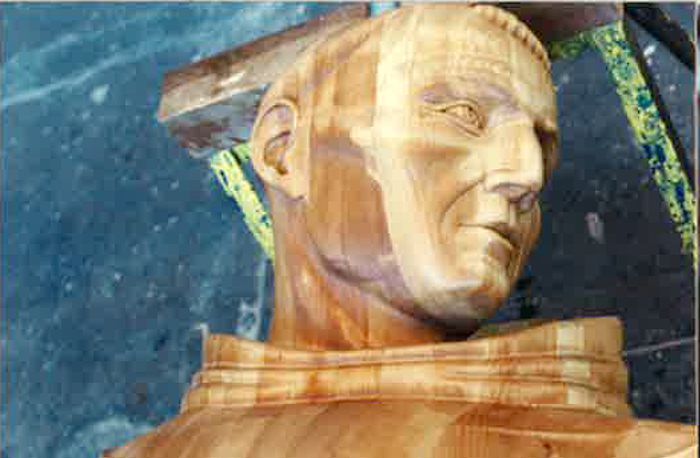The renown that has come to Fray Junípero Serra is based almost entirely upon his apostolicity, that is, the zeal with which he announced Christ to the Indian tribes of California by word and example. In fulfilling that missionary apostolate, the humble Mallorcan friar experienced every vicissitude, disappointment and type of opposition which life is capable of presenting.
Throughout the whole of his years among the natives of Mexico and California, Serra exhibited an undaunted determinism that made him a “prince among missionaries.” He expressed that attitude in a letter to his Capuchin nephew in 1774:
“When I left that beloved land of mine, I made up my mind to leave it not only in body . . . but if I was to retain forever in memory what I had left behind, what would have been the purpose of leaving it in the first place?”
The ardent, optimistic and eager missionary stated his apostolic philosophy in simple but meaningful terms, noting that for those who work among native peoples, “it will be necessary in the beginning to suffer many real privations. However, to a lover all things are sweet. But these, my poor creatures (the Indians) have cost incomparably more to my Lord Jesus Christ.”
Known to historians as “the man who never turned back,” Junípero Serra allowed no obstacle to deter his endeavors, observing only that “great undertakings have always been accompanied by great difficulties.” He was a man “who never knew the meaning of rest nor who could understand the reason for delay.” Serra’s missionary philosophy, as rephrased by his biographer, can be summed up as follows:
“First of all, give up everything and this completely, not only externally but internally so that your apostolate may be an all-out dedication. Do not let physical impediments, such as illness, hardships in travel and living conditions, climate, food, isolation bother you. Allow no difficulty to impede or discourage you, from whatever source, diabolical or human, it may come.
“Face every issue head-on. Dodge none. You are fighting for God and souls. Be kind and gentle, if possible. If you must show a holy anger and enter a principled controversy or fight, do not hesitate to do so. Be a man and not a mouse. A missionary must practice the militant virtues.
“Work in harmony with all men insofar as it is possible, but not on the principle of ‘peace at any price.’ Where injury and opposition is sustained, be forgiving as is your Heavenly Father. Never allow your zeal to abate. Try to do all that you can, but if your superiors do not see eye to eye with you, present your case, but whatever the answer, obey. Obedience, first, last and always.
“Once you embark upon your work, you are God’s servant in behalf of souls. Never turn back. Love your flock with the tenderness of a mother and help them with the providence of a father. Presuppose the pattern of hardships, contradiction, opposition and misunderstanding.
“You are in a vale of tears. Heaven is earned by such coin. Heaven awaits you as a reward. Be a man, but above all be God’s man. The Church will increase and heaven will flower in souls.
The missionary credo of Junípero Serra, the Apostle of California, is indeed impressive. This man had the stuff of which saints are made!
___________
Msgr. Weber is the archivist emeritus for the Archdiocese of Los Angeles.

